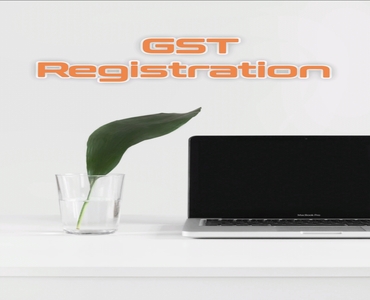GST registration is first and most important step for a person starting business. There are common questions that every supplier of goods and services ask before commencing his/her business such as why should we register under GST? What is the exemption limit of GST registration? What are the benefits of GST registration? How much time does it take to get GST number? and so on.
In this article we will try to answer all questions in relation to GST registration and what all suppliers think of about GST registration.

Person liable to obtain GST Registration
As per the section 22(1) if the CGST act, every person whose aggregate turnover in a financial year exceeds Rs. 20 lakhs is liable to get registered under the GST act. In special categories state turnover limit is Rs.10 lakhs.
The limit of turnover in case of supplier of goods is increased from Rs. 20 lakhs to Rs. 40 lakhs. The limit is applied for supplier who is exclusively engaged in the supply of goods. Limit of Rs 40 lakhs is not applicable where supplies is engaged in the business of supply of services. So, if your turnover is not more than Rs. 40 lakhs than you are not liable for GST registration. Limit of Rs. 40 lakhs does not include interest on deposit, loan and advances.
For Example: Rakesh deals in supply of service in gurgaon. His total aggregate turnover is Rs. 36 lakhs in a financial year. Does he liable to take GST registration in Gurgaon?
Exemption limit of Rs. 40 lakhs apply in case of person dealing in goods. Rakesh is a supplier of services. Hence, he is liable to register himself under the GST act.
Explanation (i) to section 22 of the CGST act states that aggregate turnover shall include all supplies whether on his own account or made on behalf of all his principals. Value of goods supplied by the principal to the job worker will be included in the turnover of the principal not on Job worker’s supplies.
Person who are not liable to get GST registration
Government under the GST act has power to grant exemption to the specified category of persons from GST registration. Following are the person not liable for GST registration:
- Person not liable to tax or is wholly exempt for the tax under the IGST act does not require to get GST registration.
- Where the service recipient is liable to pay tax under reverse charge mechanism, the service provide is no require to take GST registration.
- Job worker with turnover up to 20 lakhs/10 lakhs is exempt even if supply to registered person is inter-state.
- Person making supply of services including inter-state supply up to Rs.20 lakhs/10 lakhs. In case a person supplies goods inter-state exemption limit of Rs 20 lakhs/10 lakhs does not apply.
- Supplier of services supply services through E-commerce operator where aggregate turnover is less than Rs. 20 lakhs.
Person liable for compulsory GST registration
Following are the categories of person who are required to take GST registration, even if aggregate turnover is less than exempted threshold limit i.e. 10 lakhs/20 lakhs/40 lakhs-
- A person making inter supplies of goods
For example: Raj is starting a business of goods in Gurgaon. He wants to supply goods from Gurgaon to the other states. Now Raj needs to get GST registration in gurgaon compulsorily because exemption limit is not applied on inter-state supply.
2. Casual taxable person making taxable supply
3. Person who are required to pay tax under reverse charge mechanism.
4. Non-resident making taxable supply.
5. Person who are liable to deduct TDS under section 51.
6. Every e-commerce operator who is required to collect tax at source (TCS) under section 52
7. A person supplies goods or services or both on behalf of other taxable person, whether as an agent or otherwise.
8. Input service distributor.
9. A person supplies goods or services or both, other than the supplies given u/s 9(5), through e-commerce operator who is required to collect tax at source u/s 52.
10. A person supplies Online Information Database Access and Retrieval services (OIDAR) from a place outside India to a person in India, other than registered taxable person.
11. Such other person as may be specified by the government on the recommendation of the GST council.
Concluding Points:
- GST registration is common these days. It is not mandatory to have GST registration in each and all case. It is also a business requirement and with GST number it is difficult to run business since every company prefer to work with a person who has GST registration. Hence it becomes business requirement for all person.
- If a person takes GST registration voluntarily then exemption threshold does not apply. Once you are registered, you are liable to pay GST. A person cannot claim exemption of 40 lakhs/20 lakhs/10 lakhs.
- It is important to note that GST registration is taken from the place from where supply is made not where supply is made.
- Person supply service through e-commerce operator is not required to register up to the exemption limit of Rs.20 lakhs/10 lakhs.
- A non-resident can apply GST registration without having Permanent account number (PAN). He/she can apply GST with other documents.
About the author: Nitin Bhatia is a qualified chartered accountant practising in Delhi/NCR. He is the best CA in Gurgaon. During his professional journey, he has gained advanced experience in International Taxation, Transfer Pricing, Expatriate Taxation, Corporate Taxation, Domestic Taxation and litigation matters. International Taxation and Domestic taxation are his study topic, and he is deeply involved and updated with the recent judicial pronouncements. It helps him to give efficient and legitimate tax planning to his clients.
For any information/query/concerns related to GST provisions, please feel free to contact us at mail@nbaoffice.com







